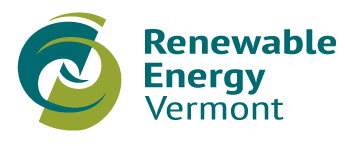The 2024 Legislative Session was a landmark one for climate and energy issues, including the passage of H.289, the Renewable Energy Standard Reform bill that will make Vermont the second fastest state in the country to get to 100% renewable energy and quadruple the amount of new renewable energy purchased by Vermont utilities. On May 29th, REV held a webinar recapping the session. View the slides from that REV 2024 Legislative Recap.
Key Bills Covered in the 2024 Legislative Recap:
H.289 – Renewable Energy Standard Reform: Building on two years of work with environmental allies and Vermont utilities, H.289 would make Vermont the second state in the country to get to 100% renewable power and quadruple the share of our state’s electricity that comes from new renewables in Vermont and the region. H.289 passed the Vermont House 99-39 and passed the Senate 18-8. Nonetheless, Governor Scott chose to veto the bill. With two-thirds majorities needed in each chamber to override the veto, the bill has a path to enactment during the veto override session scheduled for June 17th.
S.259 – The Climate Superfund Act (aka “Make Big Oil Pay”): S.259 would require the largest carbon polluters (those responsible for more than one billion tons of greenhouse gas emission in the state) to pay into a “Climate Superfund Cost Recovery Program Fund” to compensate for climate damages done to Vermont. This fund would be used for investments in climate adaptation, recovery, and resilience, potentially including investments in storage and microgrids.
S.305 – Rate Payer Assistance Study & Thermal Network Authorization: S.305 includes provisions that require the PUC to study programs and initiatives focused on reducing energy costs for low- or moderate-income households and make recommendations about the need for/structure of a ratepayer assistance program in Vermont. REV views the development of a ratepayer protection program as vital to ensuring that all Vermonters can benefit from electrification. S.305 also authorizes all municipalities to provide Thermal Energy Networks, just as municipal water and sewer utilities operate under local control and allows existing utilities and other entities to obtain PUC authorization to operate a Thermal Energy Network utility. Thermal Energy Networks are highly efficient and can help to shave peaks in electrical demand.
Contact Jonathan Dowds (jonathan@revermont.org) with any questions.
